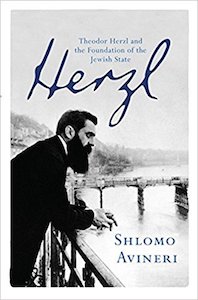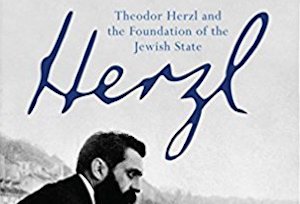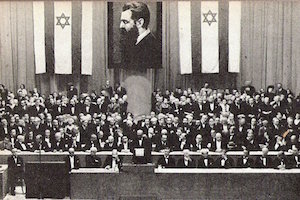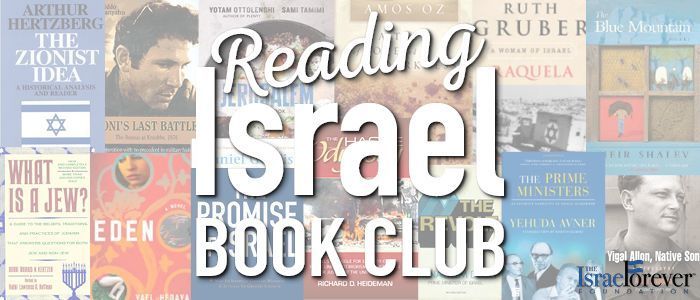Herzl: Theodor Herzl and the foundation of the Jewish State

The first biography in more than a generation of the father of modern political Zionism and in effect the state of Israel. Drawing extensively on his diaries as well as his published works, this intellectual biographical follows Herzl's transformation from a private person into the founder and leader of a political movement which made the quest for a Jewish state into a player in international politics.
Theodor Herzl had been a successful Viennese journalist and a less successful playwright with no political ambitions. That changed in 1896, when he published The Jewish State. The following year he convened a Zionist Congress in Basel, Switzerland. The Congress founded the Zionist Organization in order to establish a national home for the Jewish people in Palestine, recognized and guaranteed by public international law. As Herzl transformed himself in just a few years from writer and editor into the leader of an international political movement, he learned politics and diplomacy on the run—and to great effect. In his efforts to gain broad support for his vision, Herzl met with the Ottoman sultan; the German emperor; the king of Italy; the pope; British, Russian, and German ministers; as well as a great number of other government and public opinion leaders of many European countries. By the time of his early death in 1904 at the age of forty-four, Herzl had transformed Jewish public discourse and made the idea of a Return to Zion into a reality, albeit still a weak one, in international politics.

READ MORE ABOUT HERZL
DISCUSSION QUESTIONS
- Contrary to popular mythology regarding Herzl’s life, Avineri emphasizes that it was his reading of Eugen Dühring’s 1881 essay, “The Jewish Question as a Racial, Moral, and Cultural Issue,” which outlined the inferiority of Jews, that convinced Herzl of the failure of Jewish emancipation. Why does it matter what was the impetus behind Herzl’s initiation into Zionist activity?
- Herzl, like most Diaspora Jews both then and now, did not speak Hebrew: “Who amongst us,” he mused, “has a sufficient acquaintance with Hebrew to ask for a railway-ticket in that language?” How important is having a common language that connects all Jews around the world? It didn’t hinder Herzl’s success then, but would it now?
- When Herzl came of age, Jews had moved from the margins of Western and Central European society to the pinnacles of achievement in the professions and arts. Yet their very success “was seen as threatening,” especially in German-speaking lands, leading to the first tremors of anti-Semitism as early as 1817. How does this relate to the contemporary reality of Jews living around the world and the recent rise of Antisemitism? How is the current response to this rise of hate towards Jews and Israel different than it was at that time?
- Before writing off Herzl’s vision as “patronising colonialism,” Shlomo Avineri emphasizes that one ought to pause on the question of Jewish identity and nationalist vision in relation to the other potential citizens. As Herzl wrote, “we do not ask what race or religion a man belongs to. If he is a human being that is enough for us.” How can Israel’s efforts to live up to Herzl’s message of social equality be recognized in the ongoing battle against lies of apartheid and human rights violations?
- After debating other territorial options, Avineri highlights Herzl’s epiphany that “Palestine is our never-to-be-forgotten homeland” as turning point. How can this statement, as well as the continuous recognition of “Palestine” as the Jewish land for thousands of years even during our exile, help those today who are confused as to the relevance of the Land of Israel to Jewish life and identity?
- Avineri states in his book, “A more realistic man would have given up,” What do you think drove Herzl to continue working towards what at the time seemed like a wholly unrealistic dream?
- Herzl worked tirelessly to meet with world leaders, bringing attention to the Jewish nationalist dream and our human rights. How might his efforts 120 years ago influenced diplomacy efforts today?
- Herzl was a reporter - fairly well known in Jewish circles. He was also an aspiring novelist and playwright. What can we as a Jewish people learn from Avineri’s portrait of Herzl that can be an inspiration to young Jews looking to become involved in diplomacy, leadership and advocacy?
WHAT READERS ARE SAYING
"I've read most biographies of Theodore Herzl, and this one (translated from the Hebrew) added a new dimension to my knowledge, as it focused on the political and historical backdrop of Herzl's visionary idea and creation. It also explored the public relations aspect of Herzl's accomplishments, and how he understood the use of media in a very effective way. By the time he died (very prematurely at age 44), Zionism was "on the map" of the world, primarily due to his singular energy, brilliance, and determination." - Mindy
"A well-crafted, incisively-written book. It was certainly enlightening reading for me." - John
"Rigorous research gathered in a succinct presentation renders this an excellent resource." - Kirkus Reviews
"Shlomo Avineri’s research casts a new light on the short, troubled and driven life of Theodor Herzl. This will become an important work for all students of Zionist history." - Colin Shindler
The Reading Israel Book Club: Bring us to your community and be inspired!
Throughout the year, the Reading Israel Book Club of Israel Forever brings you a new literary delight to grow your Israel connection through the written word.
We hope that you enjoy our selections and participate in discussion not only with your friends and family but with an international community of readers in our open discussion group on Facebook.





Leave a Comment on Israel Forever